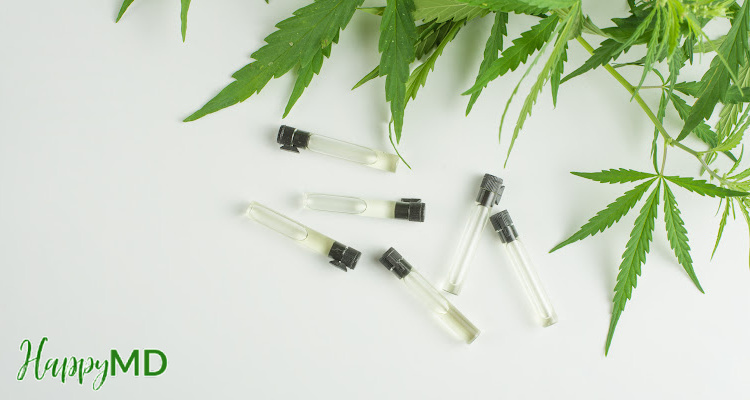
The ABCs of CBD: All You Need to Know
Cannabidiol or CBD is a non-psychoactive component of the cannabis plant. In recent years, it has gained popularity as a natural remedy for a wide range of health issues, including anxiety, pain, and insomnia. However, with so many products on the market and conflicting information, it can be difficult to know where to start. In this article, we will cover the basics of CBD, including its benefits, how to choose a product, and potential side effects.
What is CBD?
CBD is one of over 100 cannabinoids found in the cannabis plant. Unlike tetrahydrocannabinol (THC), another well-known cannabinoid, CBD is non-psychoactive, meaning it does not produce a "high" or alter one's state of mind. Instead, it is believed to interact with receptors in the body's endocannabinoid system (ECS), which regulates functions such as mood, appetite, and sleep.
Benefits of CBD
CBD has been studied for its potential therapeutic benefits, and while more research is needed, early studies have shown promising results. Here are some of the ways CBD may benefit your health:
Anxiety and Depression
CBD may help reduce symptoms of anxiety and depression, which are common mental health disorders that can have a devastating impact on one's well-being. Studies have shown that CBD may have antidepressant-like effects and may improve symptoms of social anxiety disorder.
Pain
CBD may help reduce pain and inflammation, which are common symptoms of conditions such as arthritis and multiple sclerosis. One study found that CBD significantly reduced chronic pain and improved sleep in patients with multiple sclerosis.
Sleep
CBD may also improve sleep quality and reduce insomnia. One study found that CBD improved sleep in 66% of patients with anxiety and sleep disorders.
Neuroprotective Properties
CBD has been found to have neuroprotective properties, meaning it may help protect the brain from damage and reduce the risk of neurological disorders such as Alzheimer's and Parkinson's disease.
Anti-Tumor Effects
Some studies have suggested that CBD may have anti-tumor effects and could be used to inhibit the growth of cancer cells.
Choosing a CBD Product
With so many products on the market, it can be overwhelming to choose a CBD product. Here are some factors to consider:
Type of CBD
There are three main types of CBD: full-spectrum, broad-spectrum, and isolate. Full-spectrum CBD contains all of the compounds found in the medical cannabis plant, including THC (up to 0.3%), while broad-spectrum CBD contains all of the compounds except THC. Isolate CBD contains only CBD.
Potency
Different products will have different potencies, which refer to the amount of CBD in the product. Higher potency does not necessarily mean better quality, and it's important to start with a low dose and gradually increase it until you find the right dose for you.
Method of Consumption
CBD can be consumed in a variety of ways, including oils, capsules, gummies, and topicals. Consider your lifestyle and preferences when choosing a method of consumption.
Source
It is important to choose a reputable source when purchasing CBD products. Look for products that have been third-party tested and have transparent labeling.
Potential Side Effects
While CBD is generally considered safe, it can cause side effects in some people. Here are some potential side effects to be aware of:
Dry Mouth
CBD can reduce saliva production, leading to dry mouth.
Dizziness
CBD may cause dizziness and lightheadedness in some people.
Nausea
CBD may cause nausea and vomiting in some people.
Changes in Appetite
CBD may increase or decrease appetite in some people.
FAQs
Is CBD legal?
The legality of CBD varies by state and country. In the United States, CBD is legal at the federal level as long as it contains less than 0.3% THC. However, some states have their own laws regarding CBD, so it's important to check your state's laws before purchasing.
Will CBD get me high?
No, CBD is non-psychoactive and will not produce a "high" or alter your state of mind.
How much CBD should I take?
Dosage will vary depending on the individual and the condition being treated. It's important to start with a low dose and gradually increase it until you find the right dose for you.
Will CBD show up on a drug test?
It's possible, as some drug tests can detect THC, even in small amounts. If you are concerned about drug testing, choose a broad-spectrum or isolate CBD product, which does not contain THC.
Conclusion
CBD is a promising natural remedy that may offer a variety of health benefits. However, it's important to do your research and choose a high-quality product from a reputable source. If you are considering trying CBD, speak with your healthcare provider first to ensure it is safe for you to use.
Remember, CBD is not a cure-all, and more research is needed to fully understand its potential benefits and risks. With that said, many people have found relief from a variety of conditions with the help of CBD, and it may be worth exploring as a natural option for your own health and wellness.



.png)